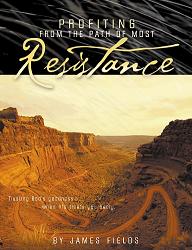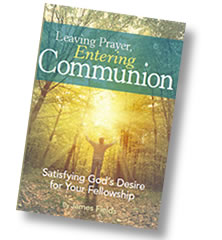 Destruction has been around a long time.
Destruction has been around a long time.
Three thousand years ago an ancient chronicler recorded these words about his world: “In those days it was not safe to travel about, for all the inhabitants of the lands were in great turmoil. One nation was being crushed by another and one city by another,” 2 Chronicles 15:5-6.
About 2,000 years ago Jesus predicted, “Nation will rise against nation, and kingdom against kingdom. There will be great earthquakes, famines and pestilences in various places, and fearful events and great signs from heaven,” Luke 21:10-11. Is there no end to destruction? Is the world doomed to suffer forever?
Good news! Approximately 2,800 years ago a Hebrew prophet named Isaiah promised, “Destruction will come to an end,” Isaiah 16:4.
Why Destruction Exists
Many people blame God for the cataclysms that devastate the earth and annihilate life. They reason that if there is a Creator why did he make destruction? Why doesn’t he stop it? They fail to recognize that perhaps God didn’t create everything.
Destruction didn’t originate in divine creativity. It sprang out of the rebellion of angels and humans in whom he placed free will.
The original earth knew nothing of decay, death, natural disasters or of hatred between humans. These devastating forces came about when Adam and Eve rejected the divine laws that bring peace.
As long as angels and humans loved the Lord and respected his commands, his presence shielded them from the possibility of ruin. On the other hand, rebellion against God removed Adam and Eve from God’s protective presence and made them liable to calamities. It’s not far-fetched to call simple humanity creators of desolation.
Jesus’ prediction of famines, earthquakes, pestilences, wars and revolutions doesn’t bring these horrible events to pass. He understood the inevitable consequences of mankind’s ever-increasing sinfulness. “There will be great distress, unequaled from the beginning of the world until now—and never to be equaled again,” Matthew 24:21. Had humanity never sinned against the Lord, destruction simply wouldn’t exist.
God Uses What He Doesn’t Create
Although God didn’t create destruction, he uses it for mankind’s welfare.
First, God uses the havoc caused by mankind’s sinfulness in his people’s favor. Love for God doesn’t remove us from the effect of destruction. Natural disasters and warfare ruin church buildings as well as grocery stores and government offices. Crime and violence injure and kill people who love Jesus and those who don’t. What then is the advantage of serving God?
Consider Jesus. All his enemies gleefully rejoiced over his torture, persecution and death. Notice how Heavenly Father used Jesus’ crushing in his favor:
- Provided an eternally glorified body for him.
- Raised him from the dead.
- Enthroned him at Heavenly Father’s right hand.
- Appointed him eternal Ruler of the universe
Jesus’ experience serves as an example of Heavenly Father’s infinite desire to use everything in our favor. “We know that in all things God works for the good of those who love him,” Romans 8:28.
Secondly, God uses tragedies caused by mankind’s sinfulness in favor of people who have not yet accepted him as Savior. Rest assured, dear friends, God longs to draw every human into salvation. “God our Savior…wants all men to be saved and to come to a knowledge of the truth,” 1 Timothy 2:3-4. However, humanity’s calloused hearts persistently reject the God who provides every breath for them. This stubborn refusal brings about misfortune which tenderizes people’s hearts toward the Lord. Motivated by adversity, they call on him for salvation. “God’s kindness leads you to salvation,” Romans 2:4 declares. “He is patient with you, not wanting anyone to perish, but everyone to come to repentance,” 2 Peter 3:9. “Our Lord’s patience means repentance,” 2 Peter 3:15. So our patient God uses the destruction he does not cause to amplify his voice that pleads for mankind’s repentance and love!
The End of Destruction
Good news—we are approaching the end of destruction! However, we must remember Jesus’ words, “When you hear of wars and revolutions…these things must happen first, but the end will not come right away,” Luke 21:9. God’s people will see rough times just like his people of the past endured many tragedies. The end of destruction is on the way but has not arrived.
But listen to this. “In keeping with his promise, we are looking forward to a new heaven and a new earth, the home of righteousness,” 2 Peter 3:13. Until that day arrives God’s Spirit will personally escort us through all the fearful times that precede Jesus’ return.
Jesus told us how to respond to the storms and stresses that afflict the world at the end of this age: “When these things begin to take place, stand up and lift up your heads, because your redemption is drawing near,” Luke 21:28. “Stand up”— don’t cringe in fear. “Lift up your heads”—don’t hang your head in despair.
“In keeping with his promise, we are looking forward to a new heaven and a new earth, the home of righteousness,” 2 Peter 3:13. Creation’s deliverance from destruction approaches fast! “Let not your hearts be troubled. Trust in God; trust also in me,” John 13:1.
From the archives of Rev. James Fields
Like this:
Like Loading...



 Destruction has been around a long time.
Destruction has been around a long time.

 After experiencing the new birth, the human spirit is alive and like every other living thing needs nourishment. However, the human spirit doesn’t eat physical food. It survives and thrives by fellowshipping with the Spirit of God. The Spirit of God fills the human spirit with energy, vitality, love for God and love for his Word, the Bible. Basically, when God’s Spirit moves into the human spirit we begin sharing our Creator’s ambitions, desires and goals.
After experiencing the new birth, the human spirit is alive and like every other living thing needs nourishment. However, the human spirit doesn’t eat physical food. It survives and thrives by fellowshipping with the Spirit of God. The Spirit of God fills the human spirit with energy, vitality, love for God and love for his Word, the Bible. Basically, when God’s Spirit moves into the human spirit we begin sharing our Creator’s ambitions, desires and goals. “Jesus, I love you, praise you, adore you, and appreciate you! I can’t thank you enough for forgiving my sins and sending your spirit into my life.” These words of love for Jesus often flowed from my lips during my late teenage years. Tears trickled down my cheeks as I attempted to express gratitude for the love God lavished upon me.
“Jesus, I love you, praise you, adore you, and appreciate you! I can’t thank you enough for forgiving my sins and sending your spirit into my life.” These words of love for Jesus often flowed from my lips during my late teenage years. Tears trickled down my cheeks as I attempted to express gratitude for the love God lavished upon me. In the second chapter of Acts, the apostles and other believers met together on the day of Pentecost. “All of them were filled with the Holy Spirit and began to speak in other tongues as the Spirit enabled them.” “We hear them declaring the wonders of God in our own tongues!”
In the second chapter of Acts, the apostles and other believers met together on the day of Pentecost. “All of them were filled with the Holy Spirit and began to speak in other tongues as the Spirit enabled them.” “We hear them declaring the wonders of God in our own tongues!” Intimacy with Jesus accelerated and my dedication to him deepened.
Intimacy with Jesus accelerated and my dedication to him deepened.
 When God formed the human body it remained lifeless until the Lord “breathed into his nostrils the breath of life,” Genesis 2:7. At that moment God’s Spirit placed a human spirit in the human body. The human spirit completed the human being and the man became a living soul.
When God formed the human body it remained lifeless until the Lord “breathed into his nostrils the breath of life,” Genesis 2:7. At that moment God’s Spirit placed a human spirit in the human body. The human spirit completed the human being and the man became a living soul. Our relationship with Jesus is spiritual, not soulish or intellectual. The Spirit of the resurrected Jesus does not live in our minds, but resides in our spirits. Relationship with God only takes place when his Spirit moves into our spirits. Jesus referred to the union of God’s Spirit with the human spirit as the new birth. He stated, “Flesh gives birth to flesh, but Spirit gives birth to spirit,” John 3:1-8. The soul, the mind and the body are not born again.
Our relationship with Jesus is spiritual, not soulish or intellectual. The Spirit of the resurrected Jesus does not live in our minds, but resides in our spirits. Relationship with God only takes place when his Spirit moves into our spirits. Jesus referred to the union of God’s Spirit with the human spirit as the new birth. He stated, “Flesh gives birth to flesh, but Spirit gives birth to spirit,” John 3:1-8. The soul, the mind and the body are not born again.
 We have made it a daily habit to read a chapter of Proverbs each day and several chapters of Psalms because they are so full of wisdom and encouragement. Psalm 138 is especially encouraging and so we thought we would just post it here for your encouragement for today! “The Lord’s unfailing love surrounds the one who trusts in him,” Psalm 32:10.
We have made it a daily habit to read a chapter of Proverbs each day and several chapters of Psalms because they are so full of wisdom and encouragement. Psalm 138 is especially encouraging and so we thought we would just post it here for your encouragement for today! “The Lord’s unfailing love surrounds the one who trusts in him,” Psalm 32:10.
 The past few years have been very different years for all of us but one of the good things that has come from it is a relationship that has grown deeper with a Christian colleague of mine. She is twenty-two years younger than I am, but her walk with God is deep and consistent. One of my prayers this year has been that God will make “old things new”. As I have aged, I began to think there was nothing new that I could learn from my Bible reading. I was wrong! I learned something new from my friend about Isaiah 40:31: “But those who wait on the Lord shall renew their strength;
The past few years have been very different years for all of us but one of the good things that has come from it is a relationship that has grown deeper with a Christian colleague of mine. She is twenty-two years younger than I am, but her walk with God is deep and consistent. One of my prayers this year has been that God will make “old things new”. As I have aged, I began to think there was nothing new that I could learn from my Bible reading. I was wrong! I learned something new from my friend about Isaiah 40:31: “But those who wait on the Lord shall renew their strength;  And speaking of hand holding. That is another new inspiration to me. I am reading “Low and Gentle” and one of the stories the author tells is of a dad walking into the shallow end of a pool with his three-year old son. The son thinks he is holding on tot he dad’s hand ever so tightly in anticipation of the uncertainty of the deeper water. Actually, it is the father that is holding on to the son. He is not going to let go. I often thought that through my life I was holding on to God, but he, our heavenly Father, is holding on to me and he will NEVER let go!
And speaking of hand holding. That is another new inspiration to me. I am reading “Low and Gentle” and one of the stories the author tells is of a dad walking into the shallow end of a pool with his three-year old son. The son thinks he is holding on tot he dad’s hand ever so tightly in anticipation of the uncertainty of the deeper water. Actually, it is the father that is holding on to the son. He is not going to let go. I often thought that through my life I was holding on to God, but he, our heavenly Father, is holding on to me and he will NEVER let go! Guest Writer: Alesia Campbell
Guest Writer: Alesia Campbell In conclusion, do not let the enemy tell you that you are too inexperienced or broken to help someone else. God repeatedly uses broken or unlikely people to get His work done and share His grace. Simply having a willing heart to be used by the Lord is what is most essential. Then step into the role of encouragement with His leading and empowering. Watch Him do the work through you!
In conclusion, do not let the enemy tell you that you are too inexperienced or broken to help someone else. God repeatedly uses broken or unlikely people to get His work done and share His grace. Simply having a willing heart to be used by the Lord is what is most essential. Then step into the role of encouragement with His leading and empowering. Watch Him do the work through you!